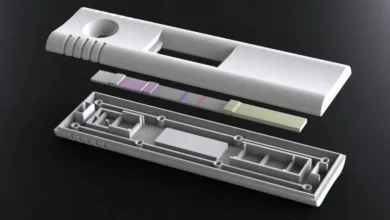🛠️ Issue 7644fg.j-7doll: Full Breakdown, Causes, Fixes, and Prevention
Introduction
Encountering Issue 7644fg.j-7doll can be frustrating, especially when it surfaces during a time-sensitive deployment or build. This issue often appears without clear explanation, causing confusion among teams that are otherwise confident in their project configuration. When overlooked, it can lead to cascading failures across services and environments.
The error can impact both frontend and backend workflows, and due to its vague naming structure, developers may struggle to identify its exact cause. That’s why it’s critical to document and understand the full scope of Issue 7644fg.j-7doll, especially for teams operating in complex or multi-environment setups.
What Is Issue 7644fg.j-7doll?
Definition and Context
Issue 7644fg.j-7doll refers to a system-level or application-level error that typically indicates a configuration mismatch, dependency failure, or environment inconsistency. It’s commonly discovered during application builds, testing processes, or continuous integration workflows.
One of the most confusing aspects of this issue is its inconsistent behavior. In some environments, it may appear only once and then disappear after a cache clears. In others, it may persist across clean installs, indicating a deeper problem with system structure or dependency resolution. It may not point directly to the failing component, requiring a detailed investigation of logs, configuration files, and environment settings.
It is not tied to a specific language or framework but is more often seen in setups where multiple services, modules, or teams contribute to a single codebase. This makes it a recurring headache for developers who rely on package managers, third-party modules, or shared configurations across microservices.
Root Causes of Issue 7644fg.j-7doll
1. Dependency Conflicts
One of the most common sources of Issue 7644fg.j-7doll is the introduction of conflicting versions of a module or package. When two packages rely on different versions of the same dependency, it can cause unpredictable results. This issue is magnified in monorepos or multi-module projects, where multiple components are updated independently.
Dependency trees can become tangled, especially when transitive dependencies are involved. A minor patch in one library could lead to a broken integration in another. Without strict version control, this creates a scenario where local builds pass but shared environments break.
2. Configuration Errors
Errors in configuration files—such as config.yml, .env, or settings.json—can also trigger this issue. Sometimes, even a small typo or a missing variable can prevent the application from resolving necessary components, resulting in Issue 7644fg.j-7doll.
Hardcoded paths, improperly set environment variables, or legacy config templates that no longer match the application logic can lead to runtime errors. Developers should double-check configuration documentation and ensure all environments are referencing the correct values.
3. Environmental Mismatches
Often, the issue arises when development, staging, and production environments are not in sync. For example, a feature may work flawlessly in local development but fail during deployment. This is because local and remote machines may use different runtime versions, file permissions, or system-level dependencies.
These mismatches are hard to detect without automated checks. They can often be resolved by containerizing environments or using environment-as-code practices, but in many teams, such standards may not be enforced consistently, leading to the persistence of Issue 7644fg.j-7doll.
4. Cache Corruption
Corrupted build caches are another significant contributor to this error. Tools like Node.js, Docker, or Python often use cached data to speed up builds, but stale or broken caches can cause modules to load improperly. As a result, the system may reference outdated or broken components, which throws errors like Issue 7644fg.j-7doll during runtime.
It’s a common mistake to assume that because the code hasn’t changed, the build will succeed. Caches must be cleaned regularly or invalidated properly during deployment cycles to avoid such conflicts.
How to Reproduce Issue 7644fg.j-7doll
Step-by-Step Guide
To effectively debug Issue 7644fg.j-7doll, it’s important to recreate it in a controlled environment. Start by duplicating the affected repository into a clean system that mimics your production environment as closely as possible.
Avoid using global dependencies during this process. Set up your environment variables exactly as they are in production. If your build relies on third-party services or APIs, mock those if necessary to isolate the issue. Rebuild the project and observe whether the error surfaces again.
Additionally, enabling debug or verbose mode during the build can provide more detailed insights. Pay attention to stack traces, deprecation warnings, and unexpected behavior in the logs. This may reveal clues about what specifically is causing Issue 7644fg.j-7doll to appear.
Solutions and Fixes for Issue 7644fg.j-7doll
Temporary Workarounds
Sometimes, simply clearing your cache or rolling back a recent change is enough to eliminate Issue 7644fg.j-7doll. Try cleaning your local environment and reinstalling all dependencies. Restart your build process from scratch, avoiding any cached files or precompiled binaries.
In the short term, locking versions in your dependency manager (e.g., using package-lock.json or poetry.lock) can stabilize your environment and prevent the error from recurring.
Permanent Fixes
To fully resolve Issue 7644fg.j-7doll, you’ll need to identify the root cause and address it directly. This might involve removing problematic dependencies, restructuring your configuration files, or updating your runtime to match that of your target deployment platform.
Make sure your CI/CD pipeline runs linting, testing, and version checks before each build. This can proactively catch the types of inconsistencies that lead to such errors. Refactoring outdated modules and aligning your system’s components to a common standard will significantly reduce the risk of seeing this issue again.
Community & Official Fixes
Developers who have faced this issue often share their insights on forums, in issue trackers, or within community documentation. Checking peer-reviewed fixes and comparing configurations from similar setups can guide you toward a solution. If you’re using an open-source platform, consider reporting your findings to help others who may face Issue 7644fg.j-7doll in the future.
How to Prevent Issue 7644fg.j-7doll
Best Practices to Follow
Preventing Issue 7644fg.j-7doll comes down to disciplined development and release practices. Use strict versioning in your project to avoid unexpected upgrades. Review all dependencies regularly, and perform dry-run builds to test for hidden conflicts.
Maintain consistency across your environments by using containers, virtual machines, or infrastructure-as-code tools. Automate your testing pipeline to include checks for configuration integrity, compatibility, and code quality. Create clear documentation for your environment setup so new developers don’t unknowingly introduce errors.
Preventative action is often simpler and less costly than fixing production-level bugs. Building with a “fail-fast” approach and testing across realistic environments will ensure you never run into Issue 7644fg.j-7doll without warning.
Expert Debugging Tips
When in doubt, always start with the basics. Is your system up to date? Are your environment variables correct? Have you recently made changes to config files or dependencies? Go back to your latest working version and begin comparing line-by-line differences.
Use tools that can audit your dependencies, like static analyzers or security checkers. When facing Issue 7644fg.j-7doll, it’s often helpful to recreate the environment in a minimal form to test each component in isolation.
Another useful technique is to enable all logging levels and redirect them to a file for analysis. This way, you can scan through detailed traces without losing context during a build or crash. Collaboration also helps—pair programming or peer review can often identify what you missed.
FAQs About Issue 7644fg.j-7doll
Q1: What exactly does Issue 7644fg.j-7doll mean?
It’s a symbolic error that indicates a failure in dependency resolution, configuration accuracy, or runtime setup. The code itself may be unique to a tool or system, but the behaviors it represents are consistent across many platforms.
Q2: Is this issue related to any specific framework or language?
No, Issue 7644fg.j-7doll has been observed in JavaScript, Python, Java, and other environments. It’s not bound to one ecosystem but often emerges in projects where third-party modules are heavily relied upon.
Q3: Can I safely ignore this issue?
Ignoring this issue may lead to deeper instability. Even if your application compiles or runs, ignoring Issue 7644fg.j-7doll means accepting unknown behavior in production, which is risky in any professional environment.
Q4: Does clearing the cache always fix Issue 7644fg.j-7doll?
Not always. While clearing the cache can temporarily suppress the issue, it doesn’t address the underlying problem. The issue will likely return unless the root cause is diagnosed and fixed.
Q5: How can I test if the issue is fixed?
Once you apply a fix, rebuild your project in a clean environment. Run all tests and simulate common workflows. Monitor the logs and ensure no recurring errors related to Issue 7644fg.j-7doll appear.
Conclusion
Issue 7644fg.j-7doll is more than just a strange error code—it’s a sign that something deeper is misaligned in your development or deployment workflow. By understanding the causes, reproducing the issue methodically, and applying the right fixes, you can eliminate it from your project with confidence.
Maintaining clean, consistent environments and following best practices in version control, testing, and automation is essential to prevent this kind of issue from resurfacing. As projects grow more complex, proactive monitoring and clear documentation become even more vital.
Taking the time to resolve Issue 7644fg.j-7doll properly can save hours of future troubleshooting and ensure a more stable, reliable codebase for you and your team.




